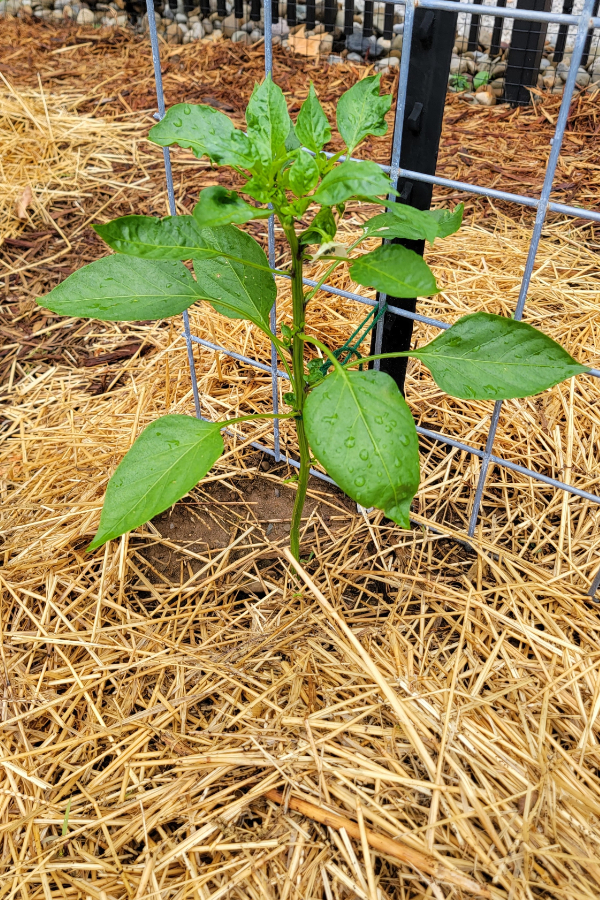Best Fertilizers for Peppers: Improve Development and Taste with Our Leading Picks
Best Fertilizers for Peppers: Improve Development and Taste with Our Leading Picks
Blog Article
Organic Vs. Synthetic Fertilizers: Which Is Best for Supporting Healthy And Balanced Pepper Plants?
In the world of nurturing healthy pepper plants, the selection in between natural and synthetic plant foods stands as a crucial decision with significant ramifications. While both choices objective to offer vital nutrients to support plant growth, the subtleties of their influence on the dirt, plant health and wellness, and the atmosphere spark a debate that mirrors throughout the gardening area. Recognizing the distinctive advantages and potential pitfalls of each fertilizer kind is crucial for pepper farmers seeking to optimize their returns while preserving an eco-conscious and sustainable approach.
Advantages of Organic Plant Foods
Organic fertilizers offer an environmentally-friendly and lasting technique to nourishing pepper plants, providing necessary nutrients without making use of artificial chemicals. These natural fertilizers are stemmed from organic resources such as compost, manure, bone dish, and seaweed, promoting dirt health and biodiversity. Unlike synthetic plant foods, organic alternatives release nutrients slowly, making certain a balanced and consistent supply for pepper plants to thrive.
One considerable benefit of organic plant foods is their ability to improve dirt framework and water retention. By enhancing soil health and wellness, natural fertilizers promote valuable microbial activity, which helps in nutrient uptake by pepper plants. In addition, organic plant foods reduce the risk of chemical run-off, securing water sources from contamination and securing the environment.
Furthermore, natural fertilizers add to lasting dirt fertility by advertising the growth of advantageous soil organisms. These microorganisms help break down raw material, launching nutrients in a form that is easily available to pepper plants. best fertilizers for peppers. By cultivating a healthy soil community, organic fertilizers sustain sustainable pepper cultivation practices that profit both plants and the environment
Downsides of Synthetic Fertilizers
Synthetic fertilizers, in comparison to their organic counterparts, position different drawbacks when used to nourish pepper plants, impacting both plant wellness and ecological sustainability. One significant downside of artificial fertilizers is their propensity to leach nutrients from the soil quickly.
Furthermore, the overuse of synthetic plant foods can add to water air pollution. Excess fertilizers not soaked up by plants can wash away into water bodies, leading to eutrophication, where algae flowers diminish oxygen levels in the water, harming aquatic life. Artificial plant foods are generally obtained from non-renewable resources, such as fossil gas, adding to carbon emissions and environmental degradation during their manufacturing.
Nutrient Absorption Contrast
When comparing organic and synthetic fertilizers in terms of nutrient absorption, organic fertilizers have the advantage of supplying an extra balanced and slow-release source of nutrients. Organic fertilizers contain a variety of macro and trace elements that are not just useful for the plants yet also promote healthy and balanced soil microbial task, which aids in nutrient uptake.
Additionally, organic plant foods boost dirt structure and water retention ability, permitting pepper plants to access nutrients a lot more effectively. This enhanced dirt top quality helps with root development, allowing better nutrient absorption. Artificial fertilizers, although at first enhancing plant growth due to their high nutrient focus, might hinder lasting nutrient absorption by derogatory soil health and wellness gradually.
Ecological Effect Factors To Consider

On the my company other hand, synthetic fertilizers, although frequently more concentrated and immediately available to plants, can have destructive impacts on the atmosphere if not used effectively (best fertilizers for peppers). Their manufacturing needs high energy inputs, leading to greenhouse gas exhausts and adding to climate change. The runoff of excess artificial fertilizers can infect water sources, leading to eutrophication and harming marine communities.
Finest Plant Food Practices for Peppers
To attain this, it is essential to follow best plant food techniques customized to the details demands of pepper plants. One critical technique next page is to execute a dirt examination before applying any plant foods.
An additional vital technique is to fertilize pepper plants at the best time. Usually, peppers gain from receiving plant food at growing and after that once again when they start to blossom. Over-fertilizing can cause nutrition imbalances check my source and harm the plants, so it is essential to adhere to suggested application rates.
Furthermore, choosing a balanced plant food with an NPK ratio that fits pepper plants' needs is essential. Inevitably, combining synthetic and organic plant foods judiciously can assist support healthy pepper plants while lessening ecological impact.
Final Thought

Organic fertilizers provide a sustainable and environmentally-friendly approach to beneficial pepper plants, giving crucial nutrients without the usage of artificial chemicals. Unlike synthetic fertilizers, natural alternatives launch nutrients slowly, guaranteeing a well balanced and consistent supply for pepper plants to flourish.
Synthetic plant foods, in comparison to their organic counterparts, posture different drawbacks when used to nurture pepper plants, affecting both plant health and ecological sustainability. When contrasting synthetic and organic plant foods in terms of nutrient absorption, organic plant foods have the advantage of providing an extra balanced and slow-release resource of nutrients.Moreover, organic plant foods enhance dirt structure and water retention ability, enabling pepper plants to access nutrients a lot more efficiently.
Report this page